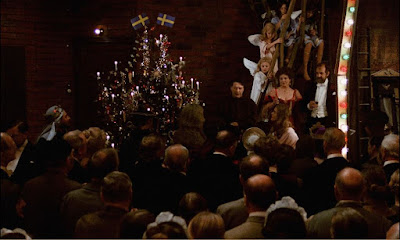Lazy, languid, laughing Jenny… to-day, depressed,
to-morrow, merry.
Directed by Graham “Cut!” Cutts and produced by
notorious, naughty Harry B. Parkinson, this film wastes absolutely no time it getting
straight down to business. You want it, you got it, Jenny (Hilda Bayley),
disaffected youth, a good-time girl, especially when Charlie’s around and sat
at a table in The Live Hundred Club which could usually be relied upon for a
secret supply of cocaine.
Here I am frequently lauding the cool Weimar hipsters for
their lack of censorship and daring morality when less than two years after the
drug was made illegal in the UK by the Dangerous Drugs Act 1920, some enterprising
types were making an entertainment about “How girls become ‘dope fiends’!!”
(and presumably boys too?).
Parkinson, of course had form in moral outrage, having previously plugged into moral panic for profit with the outrageous Trapped by the Mormons (1922) featuring a rather out of place Evelyn Brent, touring these shores on stage and behind Harry’s camera. Parkinson’s output at the time was prodigious with more schlock about Crushing the Drugs Trade and Mormonism before he produced his, genuinely wonderful, Wonderful London series. Then he went and (almost) spoiled it all by making an unauthorised biopic The Life Story of Charles Chaplin (1926), featuring Chick Wango (oh, my yes) as the title character and many sequences lifted from the real Charlie’s films. Chaplin sued and the film disappeared for ever…
Still, never let it be said that Harry didn’t have his
finger on the pulse and this is entertaining exploitation that’s, of course, no
where near as nasty as it could have been. I suppose that cocaine having
previously been legal, it was viewed as a controllable drug just as alcohol was
in the US with the prohibition which began slightly earlier in 1920. So maybe
this wasn’t a call to be wary of what is now a Class A drug but a remembrance
of fun times just past… No spoilers, but most everyone lives and “Lazy, Languid" Jenny doesn’t have to pay the ultimate price as so many women tended to even
for minor misdemeanours normally involving moral missteps… sex being far more
deadly than a bit of powder.
That said, maybe someone with a modern sensibility needs
to go through this an edit out nonconformist sentiments about the drugs
working? Or maybe it should be screened right away in the House of Commons?
There’s also blatant racism and ablism but we’re film
historians we can handle it, we have to otherwise you might as well burn it all
if a contextual interpretation cannot be found to enlighten, inform and explain
the motivations of people clearly not giving a stuff for tomorrow’s opinions
or, indeed, equality.
Anyway. The story… Ward McAllister wears yellow face as
Min Fu, the Hundred Club’s manager and a dozen others as seedy. The character
was apparently based on a gangster known as Brilliant Chang which, lets be
honest is a tough epithet to live up to and I say that as Paul “Interesting”
Joyce (courtesy of my ex-colleague Sarah from Bangor). Min Fu offers Jenny some
blow as she sits bored in the club and we’ve already seen a drugs transaction
take place outside, with cab driver passing a packet to Min Fu who gives it to
his disabled assistant, Loki (Tony Fraser)… the signifiers of evil are not
pleasant.
Loki gets busted outside and Min Fu has to report into “Number
One” – there’s always a bigger boss, and hope that his pal keeps schtum. Meanwhile,
back on the dancefloor… the joint is jumping as we take a sidestep to the
opulent mansion of the charitable and respected figure of Montagu Webster (Teddy
Arundell) who is, gasp, also Number One, leader of the whole trade. No
one suspects him of such dirty dealing, least of all his daughter Madge (Flora
Le Breton) who, as it happens is a friend of Jenny’s… and on an evening out
where she meets the respectable Stanley (Cyril Raymond). After a wonderful
evening she wants to go again but Monty does not agree, he doesn’t want her
running wild!
You can see exactly where this is headed can’t you? Maybe...
.png) |
| Teddy Arundell and Flora Le Breton |
Written by very Frank Miller, it’s a fast-paced moral
tale with some style and is good value for it’s relatively short running time;
another populist hit that Harry B. managed to smuggle past the censors with
enough consequence for the criminal and the carefree to be deemed as a message
to the gullible.
You can find it on the BFIPlayer for £1 and it’s cheap at twice the price!
.png) |
| Just say no. |
%20sniff.png)
.png)
.png)
.JPG)
.JPG)
.JPG)
.JPG)
%20party.JPG)
%20Immortal%20Beloved.JPG)

%20suit.png)


%20dance%204.png)












+colour.png)








